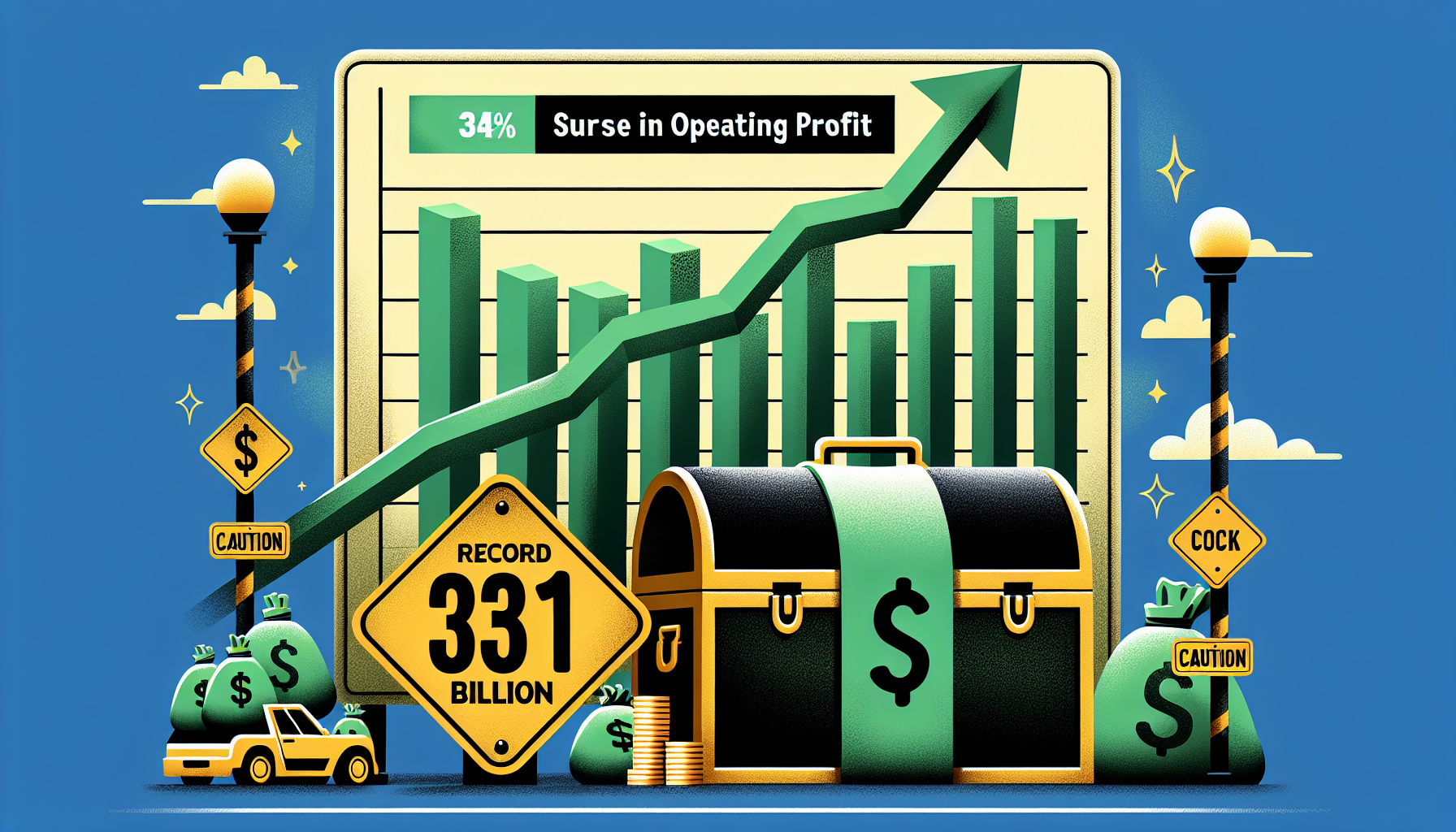Berkshire Hathaway's Record Cash Pile: A Signal of Market Caution from the Oracle of Omaha?
The investment world turns its gaze to Omaha, Nebraska, with every quarterly report from Berkshire Hathaway, seeking wisdom from the legendary Warren Buffett. The conglomerate's latest earnings release for the third quarter of 2025 has provided no shortage of talking points, revealing a tale of robust operational strength juxtaposed with a strikingly conservative investment strategy. While Berkshire's core businesses are firing on all cylinders, its legendary leader is battening down the hatches, amassing a war chest of unprecedented size and signaling a profound caution about the current market landscape.
Operational Powerhouse: The Engines Driving Berkshire's Growth
At its heart, Berkshire Hathaway is a collection of iconic American businesses, and in Q3, these subsidiaries demonstrated remarkable vitality. The headline figure—a 34% year-over-year surge in operating earnings to $13.485 billion—underscores the underlying health of the conglomerate far beyond the fluctuations of its stock portfolio. This metric, which Buffett himself favors as a true measure of performance, strips out the often-volatile investment gains and losses to focus purely on the profits generated by the companies Berkshire owns outright.
The Insurance Juggernaut Roars Back
The most dramatic driver of this performance was a stunning resurgence in the insurance sector. Insurance underwriting income skyrocketed by over 200%, reaching $2.37 billion. This isn't merely investment income from the famed "float"; this is the profit made from insurance premiums after paying out claims and expenses. Such a powerful rebound suggests disciplined underwriting, favorable claims environments, and potent pricing power within its GEICO and reinsurance units. This core competency, the very foundation upon which Buffett built his empire, is proving to be as formidable as ever.

The "Barbell Economy" in Microcosm
Beyond insurance, Berkshire's diverse holdings—from the railroad giant BNSF to the utility powerhouse Berkshire Hathaway Energy—likely contributed steady, reliable earnings. This diversified operational model acts as a buffer. Even if one sector faces headwinds, others can pick up the slack, creating a resilient earnings stream that is the envy of corporate America. This quarter's results are a testament to the strategic advantage of owning a wide array of essential, cash-generating businesses.
The $381 Billion Question: Decoding Buffett's Cash Hoard
While the operational news was overwhelmingly positive, the most discussed and analyzed aspect of the report was the ballooning cash reserve. Berkshire's cash and Treasury bill pile swelled to a record-shattering $381.6 billion, eclipsing its previous high. In a market that has rewarded aggressive risk-taking, this conservative stance speaks volumes.
A Dearth of "Elephant-Sized" Acquisitions
Warren Buffett has famously lamented the difficulty of finding "elephant-sized" acquisitions at reasonable prices. The current market environment, with elevated valuations across many sectors, appears to have exacerbated this challenge. The fact that even Berkshire, with its immense firepower, is sitting on the sidelines suggests that Buffett and his team perceive a stark disconnect between price and intrinsic value. The recent $9.7 billion all-cash deal to acquire OxyChem from Occidental Petroleum, while significant, barely made a dent in the mountain of cash, highlighting the scale of the problem. It seems the "elephants" remain elusive.
The Buyback Silence: A Statement on Intrinsic Value
Perhaps even more telling than the lack of major acquisitions was the complete absence of share buybacks. For years, Buffett has utilized buybacks as a primary method of returning value to shareholders when he believes Berkshire's stock is trading below its intrinsic worth. The fact that he has refrained from repurchasing shares—even as Berkshire's stock price has experienced a double-digit pullback from its highs—is a powerful signal. It implies that, in the leadership's view, the current stock price does not represent a compelling discount to the company's true value. This is a sobering assessment for investors hoping for buybacks to provide a floor for the stock.

The Abel Era Dawns: Navigating the Post-Buffett Transition
Looming over every financial decision is the imminent leadership transition. With Warren Buffett set to step down as CEO at the end of 2025, the market is closely watching the man chosen to fill his shoes, Greg Abel. The recent stock performance—with Class A and B shares up only 5% for the year, significantly trailing the S&P 500's 16.3% gain—partially reflects what analysts call the "Buffett Premium" evaporating.
What the Market's Patience with Greg Abel Will Look Like
This premium was the extra valuation investors were willing to pay for the unparalleled capital allocation skills of Warren Buffett. As his direct involvement wanes, the market is recalibrating. Greg Abel, a highly respected operator with a deep understanding of Berkshire's industrial portfolio, now faces the monumental task of proving his mettle not just as an operator, but as a deployer of capital on a scale few have ever managed. His actions with the $381 billion cash hoard will be his first major test. Will he continue Buffett's patient, value-oriented approach, or will he forge a new, more aggressive path?
Investment Strategy: Net Seller in a Frothy Market
Further reinforcing the theme of caution, Berkshire was a net seller of equities in the third quarter, realizing $10.4 billion in taxable gains. This activity indicates that Buffett and his investment managers, Todd Combs and Ted Weschler, found more opportunities to harvest profits from existing holdings than to initiate new, compelling positions. In a market where "fear of missing out" often drives behavior, Berkshire's disciplined selling is a contrarian stance that prioritizes capital preservation and readiness over speculative growth.
Conclusion: Market Implications for the Coming Weeks
Berkshire Hathaway's Q3 2025 report is more than a financial statement; it is a nuanced commentary on the state of the global markets from one of history's most successful investors. The robust operating earnings demonstrate the enduring strength of the American economy's industrial and consumer-facing backbone. However, the record cash pile, the absence of buybacks, and the net selling of equities paint a clear picture of caution at the highest levels of finance.
For the market in the coming weeks, this could signal a period of increased volatility and a potential rotation. The fact that a capital allocator of Berkshire's caliber cannot find attractive opportunities may give other institutional investors pause, potentially leading to a broader reassessment of equity valuations, particularly in frothy segments of the market. All eyes will be on Greg Abel and his team, watching for any shift in strategy. The key takeaway is that patience and discipline are being prioritized over aggressive deployment, a stance that has served Berkshire well for decades. If the "Oracle of Omaha" is holding his fire, it may be wise for the average investor to consider the potential storms on the horizon that he seems to be preparing for.

